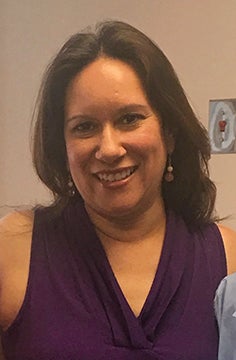Nalini Joseph: Boredom on your child’s path to greatness
Published 12:00 am Sunday, October 4, 2020
By Nalini Joseph
Just to recap: In week one, we set the stage for learning in your home by making it commonplace and kinda cool to discuss the intellectual advances that your children are making. Last week, we talked about taking time out to stop our frenetic level of activity for “a mindful minute.”
Now onto this word that your child may have said once, twice or more with pandemic restrictions and quarantines in full force: “Mom, dad, I’m bored!”
Does this word grate on your nerves? Do you immediately think something along the lines of, “Wow, I wish I had time to be bored. With laundry to do, dinner to fix, picking up, dropping off, I can’t imagine being bored.” Do you then immediately fix your child’s problem by suggesting an activity, sometimes attempting to match your own level of busyness?
In talking with mothers and as a mother myself. I have concluded that kids say they’re bored because they are: saturated with one activity, quickly needing another activity in order to stay stimulated or they use the word to describe or avoid a piece of learning that is particularly monotonous, difficult or frustrating.
Growing up in India in the 1970s and ‘80s, I did not hear children use the word “boring.” There may be a multitude of reasons for this lack of verbiage in that culture. However, let’s focus on an attitude of parents in India who raise children to be successful as a required part of the culture. They instill in their children an overall sense of gratefulness for privileges they are afforded while growing up in lower, middle or upper class homes. This gratitude comes about as a result of having beggars as neighbors who live on the sidewalk just a few steps outside their home or through relationship with the poor who are unable to buy health care or send their children to school. Maybe boredom was not an option for us children who grew up with the luxury of having books to read and schools to learn in.
Up until about 100 years ago, America was an agrarian society. Adults and children worked on farmland and in fields. Surely, these tasks were mundane and difficult. Yes, children probably found these tasks “boring,” but parents did not offer their children alternatives or choices. The work had to be done; children were expected to participate and “just do it.” My guess is that tasks that were “boring” were not labelled as such. There was no air conditioning or central heat; there were no laundry machines or microwaves. America became a great land partly because helping your family was a necessity.
The next time your child approaches you with the presenting problem of “I’m bored,” nod your head and say in an offhanded way: “Gotcha.” And leave it at that. Your kids know where their toys and books are and where they can lie down and stare at the ceiling for a while.
The point is this: kids should not rely on parents for continuous entertainment. Stress to your child that life is not an amusement park. When your child immerses themselves in the study of science and technology or when they hunker down to study for the bar exam, will you expect them to give up on rote memorization? Will you encourage your child to bypass studying material that lacks thrill or excitement? So then why give our children the easy way out when they are very young? Why do we rush to their aid with a myriad of “things to do” when they cry “I’m bored! I have nothing to do!”
We’re simply setting ourselves up for conflict when we have to reverse this message just a few years later, saying, “I know it’s boring, but you need to focus and do it anyway.”
Finally, do not confuse “bored” with “unproductive.” We’ve established that kids need time to imagine, reflect and wonder in a decluttered environment. Outwardly, it may appear as though your child is doing nothing productive when in fact, they are using their young brains to process and think. Recognize and teach your child that their notion of perceived boredom is a necessary part of growth.
Nalini Joseph is a resident of Salisbury. She is the proud mother of 10-year honor-roll student, Rohan Joseph, who also serves his community as president of COVID Busters. Email her at nalinijones1@hotmail.com.


